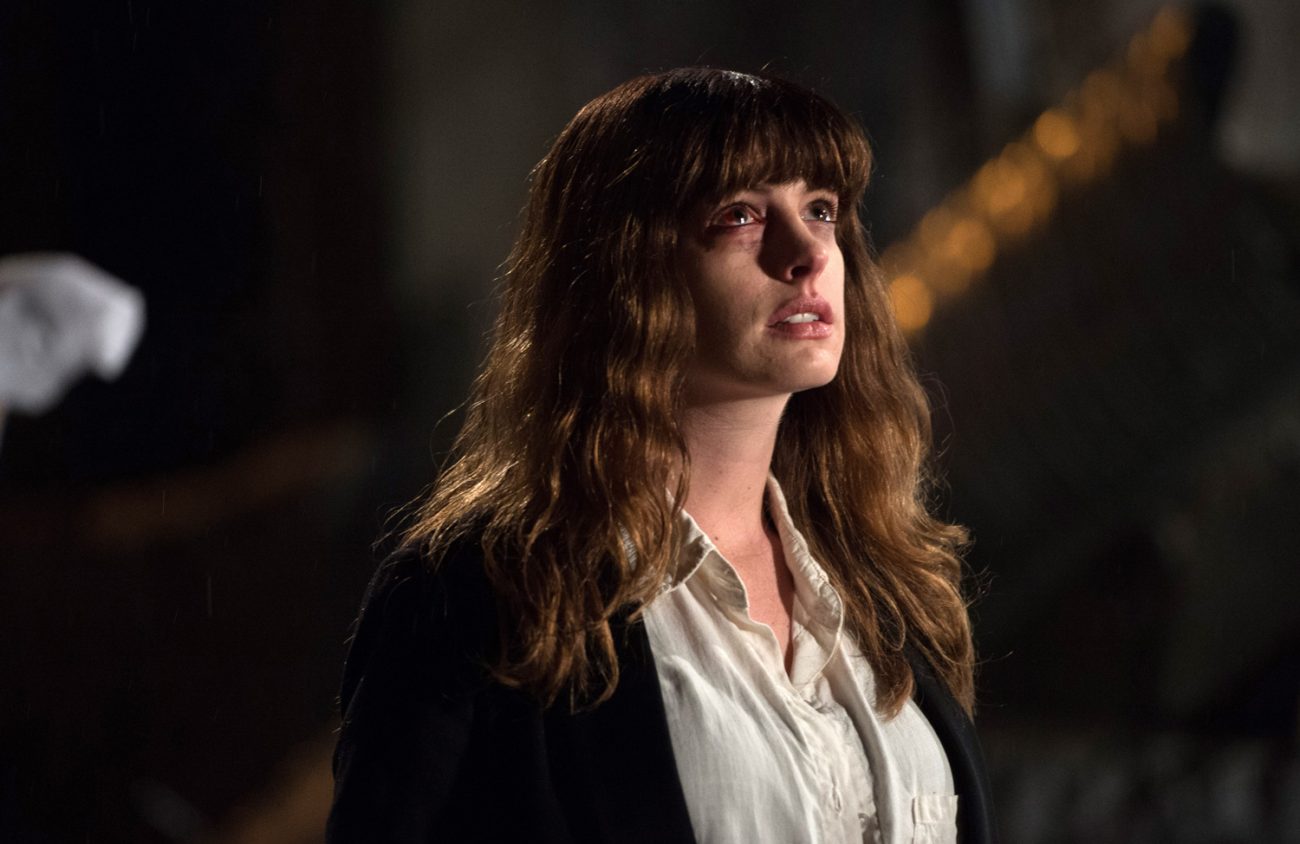A carousing alcoholic with a tendency toward blackout, Gloria (the excellent Anne Hathaway) saunters home at sunrise one morning to find that her boyfriend, Tim (Dan Stevens), has packed her bags. Game over: It’s time for this girl — and her lies, lame excuses and generally bad behavior — to go. Goodbye New York, farewell failed writing career and hello Midwest hometown, where Gloria, tail between her legs, shacks up in a vacant rental owned by her conspicuously absent parents.
Serendipitously (perhaps), Gloria runs into Oscar (Jason Sudeikis, also excellent), her friend from elementary school who now owns the revamped tavern he inherited from his father. Oscar gives Gloria a job, and the two spend late nights drinking. Romantic tensions ensue, fueled by loneliness, desperation and a hazy nostalgia for the past.
Meanwhile, in the South Korean capital of Seoul, a giant reptile — a gargantuan Godzilla-like beast with a tapewormy head — has been appearing, wreaking havoc and then disappearing at irregular intervals. Gloria, shaking off a hangover, realizes that the random appearances and quirky movements of the monster are tied, like some supernatural marionette, to her walks through the same playground she frequented as a kid. She is the monster, literally and figuratively.
Written and directed by Nacho Vigalondo, Colossal is a well-made, well-acted film that so nearly hits its mark you can almost forgive the failure of its flat final act. The premise is sheer genius — so rich in potential that the first half of the movie is carried along on a fizzy, giddy wave of intellectual suspense. Who has not wondered at the rippling, unanticipated hurt our bad acts cause to vibrate outward through space and time?
The metaphors here abound and, for a while, Vigalondo teases them out with thrilling tact: Is Gloria’s vicarious behemoth a tragicomic comment on the untold destruction left in the wake of alcoholism? Or perhaps a nifty analogy about the ways our personal privilege is complicit in the purgatory created across the globe — a kind of geopolitical Butterfly Effect that personalizes the apocalyptic guilt of all those Godzilla movies from the nuclear ’50s?
It could be argued that digging out the metaphors that do or do not fuel a movie is simply an act of subjective masturbation — an analytical eye-of-the-beholder type thing — but in the case of Colossal, such things matter, and they matter implicitly. The epic threat and dark mystery that are kicked into motion by the appearance of the colossus is, in the final act, slammed shut in the most pedestrian way with a concluding battle royal that, ironically, is so predictable and so narcissistically meepy that it actually beggars belief.
It is impossible to believe that a person who, upon learning that her walks through a playground unleash monstrous death and destruction on the other side of the world, would not (one) consider suicide or (two) simply stop walking through said playground. That this film, otherwise so exquisitely made, fails to take these existential questions into account is exactly what leads it, with queasy inevitability, to the false catharsis of its ending — a bit of bad faith that undermines everything by revealing the molehill that made the mountain.
So the question remains: Is Colossal worth seeing? Absolutely, yes. My disappointment in the film is precisely proportional to the originality of its conceit and the way it soars forth with so much early promise. That the movie eventually crashes, and in such a piddling Hollywood way, is part and parcel of the riskiness of art, which fails far more often than it succeeds. The failure here is one of nerve: The film’s vision of guilt and violence comes back and bites it in the ass, like a playground dispute that sacrifices an entire city in an empty gesture of revenge. (Broadway Metro)
